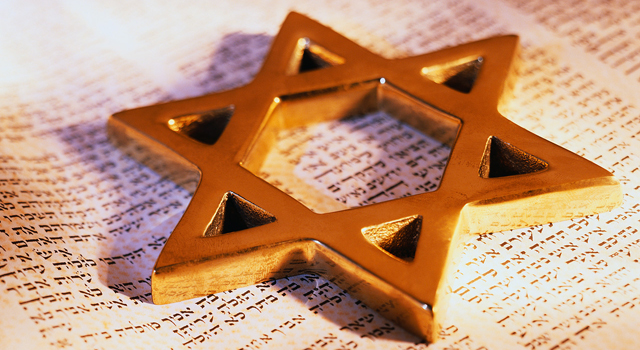
By Shlomo Riskin
“And Pharaoh said to Joseph, I had a dream last night, and no one is able to interpret it….” (Gen. 41:15)
There is an unusual symmetry in the portion of Miketz as well as in Vayeshev, both of which deal almost exclusively with the rise and fall (in Vayeshev) and the fall and rise (in Miketz) of Joseph.
Vayeshev begins with an introduction to Joseph. Not only is he talented, brilliant and handsome, but he is the beloved son of the beloved wife, Rachel. As the apple of his father’s eye, physically as well as spiritually, he can do no wrong. Little wonder that his father adores him and adorns him with the much-prized cloak of many colors.
Yet, by the end of the portion, Joseph is in prison. It is the final degradation in a series of degradations that began shortly after earning the hatred of his brothers for his loose tongue and provocative dreams as a result of which he was cast into a pit and sold into slavery in Egypt.
Miketz ėnds with Joseph still in prison, but almost immediately we witness his miraculous rise and emergence as a world leader. The former seventeen-year-old dreamer becomes Grand Vizier (second only to the Pharaoh) and Secretary of Treasury, Labor and Agriculture all rolled into one. Pharaoh may be the symbolic head of Egypt, the god of the Egyptian “pantheon”, but because of his total trust in Joseph, the son of Jacob now effectively rules the land, a prime minister without the possibility of anyone casting a no-confidence vote against him.
Rabbi Isaac Bernstein ingeniously suggests the method behind the symmetry. The favored and beloved Joseph is doomed to begin his downward descent because, although he dreams grand dreams, he is totally self-absorbed; his sole interest lies in communicating his dreams of self-aggrandizement to others. By the beginning of Miketz, however Joseph is listening to the dreams of others and using them to help the others. Once one begins listening to other people’s dreams one is ready to ascend upwards and achieve true leadership.
I would develop this idea further by suggesting that the real key to Joseph’s interpretation lies in his new-found ability to carefully listen. Remember that the prophet Elijah receives a vision from the Almighty at the end of his life teaching him that the Divine Presence is to be found in a small silent voice, Kol demama daka. How can a voice be silent? The adviser’s voice must be silent in order to listen very carefully to the words of the supplicant. Proper advice which has God’s own stamp of approval can only emerge from careful listening to and empathizing with the individual who speaks out of desperation and travail. Only when one understands what the questioner really wants, can one offer him/her proper advice. Prophecy is based in no small measure upon one’s ability to listen.
When the wine steward revealed his dream – and dreams are always a key to the hidden and often subconscious thoughts and aspirations of the dreamer – of “squeezing grapes into Pharaoh’s cup, and then placing the cup in Pharaoh’s hand” (Gen. 40:11), it became clear to Joseph that the wine steward only wanted to continue to serve his master, that he had no trace of a guilty conscience, and so he would be found innocent and returned to service.
The chief baker’s dream, on the other hand, is very different. He dreams of birds snatching the loaves of bread from the basket on his head. The birds, or nature, are “out to get him” – and often people who suffer from paranoia have reason to feel guilty. Joseph listened well and surmised that the chief baker was indeed guilty and so would be hanged within three days.
Similar was the case of Pharaoh’s dream. Joseph understood that Pharaoh’s chief concern was the economic well-being of Egypt, and this subject had to be the point of a dream which repeated itself so often to the man most responsible for Egypt’s well being. And if Pharaoh was frightened – of economic disaster – by the way, a cyclical occurrence in Egypt which Joseph was certainly aware of – the best way for Joseph to overcome that concern was to present a plan of prevention:
“Now therefore let Pharaoh seek out a man understanding and wise, and set him over the land of Egypt in the seven years of plenty. And let them store up all the food of those good years that come, and pile up corn under the hand of Pharaoh…that the land shall not be cut off through the famine.” And the thing was good in the eyes of Pharaoh….” (Gen. 41:33–37)
The Joseph of Miketz did not shout his dreams to others whom he saw as his servants; he rather listened carefully to the dreams of others, and was ready to be of service to them wherever possible. Only this changed Joseph could be expected to rise and remain on top.
The content of Joseph’s earlier dreams is also an important piece in understanding his downward turn. Joseph’s dream is predicated to a certain degree upon his father Jacob’s dream, the dream of “…a ladder standing on the ground, its top reached up toward heaven…God’s angels were going up and down on it…” Joseph, too, dreams of the two elements in his father’s dream, the earth and the heavens. His first dream is of the earth – stalks of wheat – and his second dream is of the heavens – sun, moon and stars. But there are two major differences between the dreams of father and son. Jacob’s dream is one: he yearns to connect heaven and earth. Joseph has two separate dreams. In Jacob’s dreams, God and the angels are at its center; in Joseph’s dream he himself is at the center, with the eleven stalks of wheat and eleven stars, sun and moon bowing down to him. God is absent from Joseph’s subconscious; he, Joseph, wishes dominion on earth and even in the heavenly cosmos.
But as the Joseph stories develop, a much chastened Joseph, as well as his repentant brothers, learn invaluable lessons. The brothers learn that they should have tried to teach – not tear away – their errant and supercilious brother. Joseph learns that his abilities of economic and administrative leadership must serve the higher power of God and Torah. Joseph’s dreams are realized in Egypt – when his family must bow to him as Grand Vizier of Egypt. But in the greater dream of Israel, the vision of the Covenant between the Pieces and the ultimate goal of world peace and redemption, Joseph will serve Judah, the guardian of tradition and Torah. Jacob only gives Joseph the “blessing” of a double portion; the ‘“birthright” of spiritual leadership and direction is granted to Judah (Gen. 49:8–10). When Joseph truly understands his proper position, he is able to rise above his fall into the pit and take his place as the heir to the blessing, but not as the heir to the birthright, as leader of the family-nation.
Rabbi Shlomo Riskin is chancellor of Ohr Torah Stone and chief rabbi of Efrat, Israel.








 Southern New England Jewish Ledger
Southern New England Jewish Ledger










